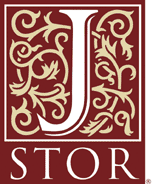
Castro's Cuba
Authoritarian State Checklist
Emergence of authoritarian states
-
Conditions in which authoritarian states emerged: economic factors; social division; impact of war; weakness of political system
-
Methods used to establish authoritarian states: persuasion and coercion; the role of leaders; ideology; the use of force; propaganda
Consolidation and maintenance of power
-
Use of legal methods; use of force; charismatic leadership; dissemination of propaganda
-
Nature, extent and treatment of opposition
-
The impact of the success and/or failure of foreign policy on the maintenance of power
Aims and results of policies
-
Aims and impact of domestic economic, political, cultural and social policies
-
The impact of policies on women and minorities
-
Authoritarian control and the extent to which it was achieved
(1) How did Fidel Castro rise to power in Cuba?
- book icon at the top...
Read and make notes on: (red - conditions; weaknesses of others; black - methods, tactics used by Castro)
60 - 19C Cuba
60-1 - Cuban independence
61-2 - USA involvement
62-3 - 1930s Cuba + revolution
63-4 - 1940s Batista's Cuba + Autentico Presidencies
65. - 1952 + Batista's revolution
65-6 - Emergence of Fidel Castro
66-8 - 1953 Moncado Barracks attack
68-9 - Moncado trial
69-70 - 1955-56 Exile and return
71. - 1956 Granma + Santiago uprising
71-2 - Sierra Mastra
72-3 - Peasant support
73-4 - Rural campaign
74-5 - Urban revolutionary campaigns
75. - Propaganda
75-6 - Batista's counterattack
76-7 - Castro's victory
77-8 - Reasons for Batista's collapse
79 - C+C Hitler and Castro's RTP
Summarise Castro's rise to power in terms of:
- methods used
- conditions faced; mistakes + weaknesses of others
Compare and contrast the role of propaganda in the emergence of two authoritarian states, each from different regions
(2) How did Fidel Castro consolidate and maintain his power?
- book icon at the top...
80-81 - What threat did the US pose to this 'new' Cuba?
81 - What was Castro's early ideology based around?
81-82 - What events and influences caused him to adopt an increasingly Communist position?
82 - How did Castro establish his government, and what challenges arose? What did this demonstrate about
Castro as a leader?
83 - How did Castro's policies on elections + INRA reflect this shift?
83 - How did Castro deal with Lanz + Urrutria, and how did this reflect on him as leader?
83-84 - Why did Castro try to consolidate the revolution by banning free elections and how is this regarded?
84 - How did he consolidate power?
85-86 - What challenges did he face in 1959 and how did he overcome them in the years that followed?
87 - How did the US respond to the Cuban Revolution?
87-88 - What internal threats existed to Castro and how were they dealt with?
88-89 - What other external threats existed?
89 - How did the USA use economics to try and destabilise Castro? What impact did this have?
90-92 - How did Castro deal with the continuing US attempts to oust him? (Bay of Pigs; Cuban Missile Crisis)
Summarise how Castro established control, and how he dealt with external and internal enemies...
'Maintenance of power was reliant upon the silencing of opposition"
- Discuss this view, with reference to two authoritarian states you have studied from different regions.
(3) How did Castro's domestic policies affect Cuba? How successful were they?
- book icon at the top...
Castro's ideology
94 - How Communist was Castro? What were his aims economically and socially?
Economic policy
93-4 - Outline the relationship between Cuba + the USSR over the 1960s
94-5 - What economic problems did Cuba face?
94-5. - What solutions were implemented?
95 - Outline why the Rectification Campaign of 1986 was launched, and what were the results'
95-6. - How was land reform implemented from 1950s onwards? How successful was it?
99-100 - What was the Ochoa Affair and how did it affect Cuba?
99-100 - What was the 'Special Period' and why did it result from this?
100. - How did the collapse of the USSR affect Cuba?
100. - How did Cuba survive this economic crisis according to Balfour?
100-01 - What economic policies did the Government introduce to deal with the issues that Cuba faced?
Social policy
96 - How did Castro see social policy? How consistent was this vision to Cuba in reality?
96. - Outline Castro's health and education policies
97- - How did Castro deal with the media? How consistent was this with Castro's overall vision for Cuban society?
97. - Explain the repeated waves of escape and the establishment of Little Havana in Florida
98-9 - Outline the use of coercion by Castro as a form of social control
How successful was Castro's domestic policy in meeting his aims for Cuba?
'Domestic policy rarely managed to achieve its aims'
Discuss how far you agree with this statement with reference to two authoritarian states you have studied, both from different regions

.png)


